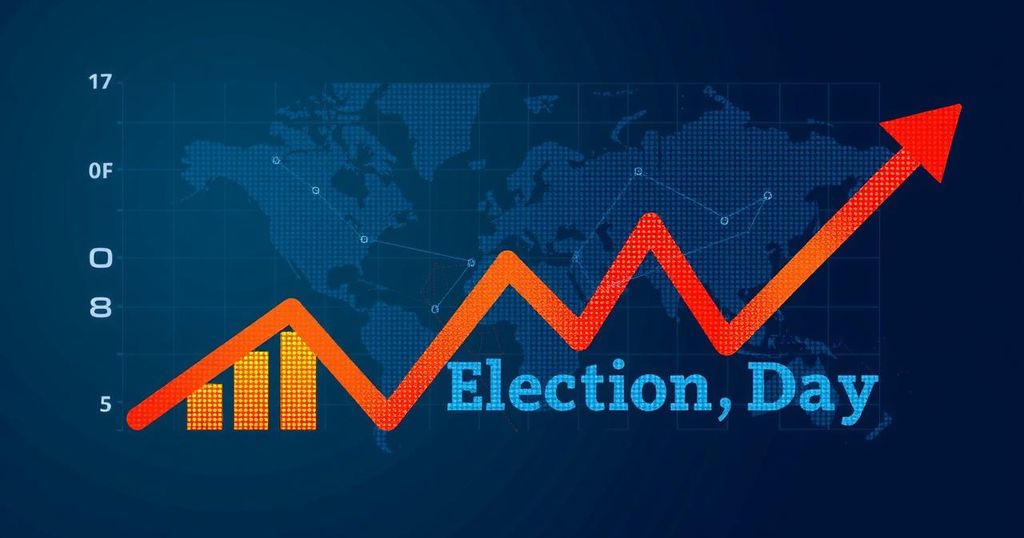Economic Landscape Influences Election Dynamics

As Election Day nears, the U.S. economy exhibits signs of resilience with a 2.8% G.D.P. growth in Q3 and cooling inflation. However, many voters still view the economy unfavorably, which could significantly impact election outcomes. Trump maintains an edge in perceived economic competence, though Harris is closing the trust gap. Trump’s focus on immigration rather than economic issues presents a strategic challenge, while political developments unfold across states.
As Election Day approaches, recent economic indicators suggest a robust state for the American economy. A government report released today highlighted that Gross Domestic Product (G.D.P.) has grown at an annual rate of 2.8 percent during the third quarter. Consumer spending is on the rise, and inflation rates show signs of decline, suggesting a recovery trajectory from the pandemic-induced downturn. Despite these positive signs, the public sentiment remains mixed; a significant number of voters perceive the economy as merely fair or poor, indicating persistent discontent that may influence the electoral outcome. According to the most recent Times poll, voters continue to prioritize the economy as the principal issue for the impending election. Trust in economic management leans towards former President Donald Trump, albeit Vice President Kamala Harris has narrowed the gap in voter trust from a 13-point deficit to just six points in the past month. Michael Gold, a colleague covering Trump’s campaign, noted, “When Trump taps into voters’ concerns over the economy, it can be very effective. A lot of voters see the economy as a referendum on the current administration, and when Trump focuses on that, he can be very strong.” However, Trump’s tendency to deviate from economic discussions poses a challenge. His advisors have encouraged him to emphasize economic topics, yet he has consistently prioritized immigration issues, a focus he attributes to his 2016 electoral success, often transforming relevant events into discussions surrounding border control. In related political updates, the Supreme Court has permitted Virginia to remove approximately 1,600 potentially ineligible voters from its rolls. Meanwhile, Vice President Harris has attempted to distance herself from President Biden’s recent controversial comments regarding Trump supporters. Arizona appears to be a competitive battleground, with Republicans focusing on immigration and Democrats centering their strategy on abortion rights. Additionally, prominent financial operators exploit lenient regulatory frameworks, and actor Arnold Schwarzenegger has endorsed Harris. Upcoming discussions concerning the timing of the election’s calling remain pivotal within the political arena. The reader is encouraged to refer to The Times for further details.
The context of this article centers on the state of the U.S. economy just before an important election. With ongoing economic transformations post-COVID-19, voters are keenly assessing their economic circumstances and how they reflect on their political choices. The article examines how economic indicators and voter sentiments influence political campaigns and highlight the contrasting strategies of key candidates, particularly focusing on Trump and Harris amid fluctuating public opinions regarding economic management.
In summary, while the American economy shows signs of recovery with increasing consumer spending and declining inflation, public perception remains critical. Voter priorities reflect a significant focus on the economy as an electoral issue. Former President Trump’s economic narrative resonates with many, yet his campaign tactics may shift attention from economic discussions. As both party candidates prepare for Election Day, the economic landscape will likely play a crucial role in addressing voter concerns and influencing their decisions.
Original Source: www.nytimes.com







